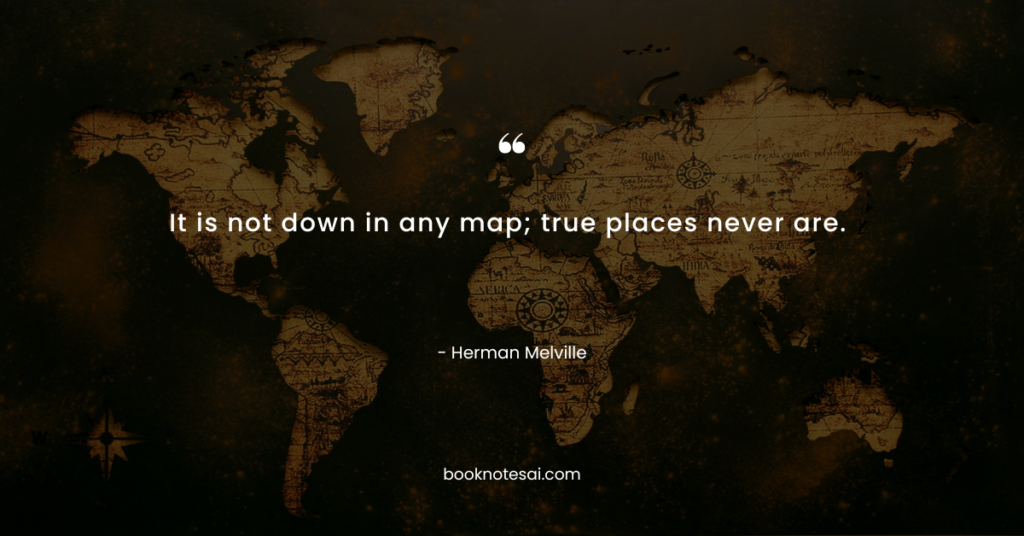Listen To This Post
Moby Dick Summary: A Tale of Obsession and Adventure.

This is a book summary for Moby Dick by Herman Melville. The essential information is structured to be straightforward, useful, and valuable, all while helping you save plenty of time.
Introduction: Why this book?
- Moby Dick by Herman Melville is a timeless classic that explores themes of obsession, fate, and the struggle between man and nature.
- Through its rich symbolism and unforgettable characters, the novel offers readers a profound insight into the human condition, making it a must-read for anyone seeking to explore the depths of literature.
Moby Dick Summary:
- Moby Dick follows the journey of Ishmael, a young sailor, who joins Captain Ahab’s quest for revenge against the elusive white whale, Moby Dick.
- As the crew sails the high seas, the novel delves into themes of obsession, the nature of evil, and the limits of human knowledge.
- Melville’s vivid descriptions of life aboard a whaling ship and his exploration of the whale’s symbolism captivate readers, offering a profound meditation on the complexities of existence.
- Through its layered narrative and philosophical undertones, Moby Dick challenges readers to confront their own inner demons and grapple with the mysteries of the universe.
💡 5 Big Ideas
- The Pursuit of Obsession: Ahab’s relentless pursuit of Moby Dick symbolizes humanity’s quest for meaning and purpose in a seemingly indifferent universe.
We learn that unchecked obsession can lead to self-destruction. - The Power of Nature: Moby Dick represents the formidable forces of nature that defy human control and comprehension.
Melville reminds us of our place in the natural world and the limits of our dominion. - The Complexity of Good and Evil: The characters in Moby-Dick embody shades of moral ambiguity, challenging traditional notions of right and wrong.
We learn that goodness and wickedness often coexist within the same soul. - The Search for Identity: Ishmael’s journey mirrors our own quest for self-discovery and understanding.
Through his experiences, we confront questions of identity, belonging, and existential purpose. - The Inescapability of Fate: Despite Ahab’s determination to defy fate, his tragic end underscores the inevitability of destiny.
We are reminded that our actions have consequences, and our destinies are intertwined with larger cosmic forces.
In summary, Moby Dick invites readers to contemplate the complexities of existence, the nature of humanity, and the mysteries of the universe.
Powerful Quotes
- “Call me Ishmael.”
This quote introduces the protagonist and sets the tone for the narrative. It invites readers to embark on a journey of self-discovery and exploration. - “It is better to fail in originality than to succeed in imitation.”
This quote encourages creative thinking and the pursuit of authenticity in one’s endeavors. - “There is a wisdom that is woe; but there is a woe that is madness.”
This quote highlights the fine line between wisdom and folly, suggesting that deeper insights often come at a cost. - “Whenever I find myself growing grim about the mouth; whenever it is a damp, drizzly November in my soul…I account it high time to get to sea as soon as I can.”
This quote reflects Ishmael’s restless spirit and his yearning for adventure and renewal. - “From hell’s heart, I stab at thee; for hate’s sake, I spit my last breath at thee.”
This quote epitomizes Ahab’s consuming obsession with revenge and his willingness to sacrifice everything in its pursuit. - “I know not all that may be coming, but be it what it will, I’ll go to it laughing.”
This quote embodies Ishmael’s acceptance of the unknown and his readiness to embrace whatever the future may hold. - “There are certain queer times and occasions in this strange mixed affair we call life when a man takes this whole universe for a vast practical joke.”
This quote captures the existential absurdity of human existence and the whimsical nature of fate. - “It is not down in any map; true places never are.”
This quote speaks to the ineffable essence of true experience and the limitations of conventional knowledge. - “Heaven have mercy on us all—Presbyterians and Pagans alike—for we are all somehow dreadfully cracked about the head, and sadly need mending.”
This quote humorously acknowledges the flawed nature of humanity and the universal need for redemption. - “I would prefer not to.”
This quote, famously uttered by Bartleby in Melville’s other work, Bartleby, the Scrivener, encapsulates the character’s passive resistance and existential disillusionment.
One Reason To Read This Book:
Dive into the depths of human experience and explore the timeless themes of obsession, fate, and the mysteries of existence in Moby-Dick.
Who should I recommend Moby Dick Summary to?
Fans of classic literature seeking a profound exploration of the human condition.
Adventurous readers eager to embark on an epic journey across the high seas and into the depths of the soul.
Recommendations:
- In the Heart of the Sea: The Tragedy of the Whaleship Essex by Nathaniel Philbrick (Book)
- “The Moby Dick Podcast” by Loyal Books (Podcast)
- “Melville’s Moby-Dick: A Documentary Film” (Documentary)
This summary serves as a complimentary guide to the reviewed title Moby Dick, offering key insights. For a deeper understanding, we encourage you to explore the full book.


